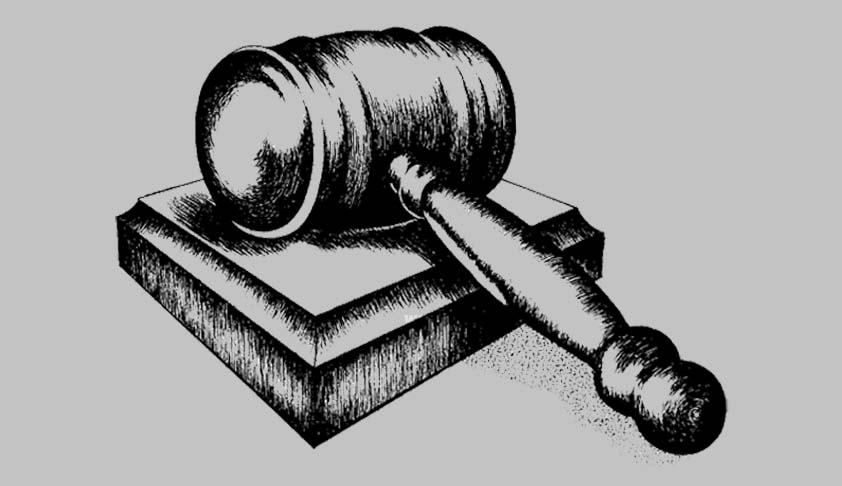Private Sector (Commercial Organisations) Brought Under The Net Of Indian Anti-Corruption Law
Vipin Warrier
24 Aug 2018 3:24 PM IST

India has a long history when it comes to regulation of corruption, commencing from the enactment of the Criminal Law (Amendment) Ordinance, 1944 under the Government of India Act, 1935. The first consolidated law in independent India was the Prevention of Corruption Act, 1947. The 1947 Act was replaced with the Prevention of Corruption Act, 1988 (PC Act) whereby the scope of the definition of a public servant was widened. The instant amendment that received the assent of the President on 26th July 2018 was “necessitated by India’s ratification of the United Nations Convention Against Corruption (UNCAC) in May 2011, judicial pronouncements, and the need to bring domestic laws in line with international practices”[1]. One of the most significant aspects of the amendment is that almost akin to the UK Bribery Act 2010 and Foreign Corrupt Practices Act, 1977, private sector entities that carries on business (defined as commercial organisation) has been distinctly brought under the purview of the PC Act.
Offences by a Commercial Organisation
s.8 makes that act of a person giving or offering undue advantage to another person with an intention to induce or to reward a public servant to perform or for performing a public function, as the case may be, improperly an offence and makes a commercial organisation liable if that offence is committed by a commercial organisation. Further, s.9 provides that a commercial organisation shall be liable if any person associated with such commercial organisation gives or promises to give any undue advantage to a public servant with an intent to obtain or retain business or any advantage for such commercial organisation. A commercial organisation is defined as a body which is incorporated in India and which carries on business in India or outside India and as a body which is incorporated outside India and which carries on a business, or part of a business, in any part of India. Similarly, a partnership or any association of persons will also amount to a commercial organisation. Business, per the provision, includes a trade or profession or providing service. A person is said to be associated with the commercial organisation, if such person performs services for or on behalf of the commercial organisation irrespective of any promise to give or giving of any undue advantage.
Expansive in nature
The commercial organisations shall be wary of the expansive nature of the amended PC Act. An undue advantage is defined as any gratification whatever, other than legal remuneration. The word “gratification” is not limited to pecuniary gratifications or to gratifications estimable in money. It is also to be noted that if the public servant accepts the gratification is of no consequence. The most crucial aspect to be taken note is the wide ambit of the concept of “person associated with a commercial organisation” which includes any person who performs services for or on behalf of the commercial organisation. Consequently, a commercial organisation shall be liable for the actions of not only its employees but also of various third parties such as agents, consultants and intermediaries, to visualise a few possible instances. Body corporates even though formed outside India but carrying on business in any part of India is exposed to same risks.
Person in charge of commercial organisation to be guilty of offence
s.10 provides that where an offence under s.9 is committed by a commercial organisation, and such offence is proved in the court to have been committed with the consent or connivance of any director, manager, secretary or other officer of the commercial organisation, such director, manager, secretary or another officer shall be guilty of the offence and shall punishable with imprisonment for a term which may extend to seven years in addition to fine.
Compliance with Central Government Guidelines
s.9, in line with s.9 of UK Bribery Act, 2010, provides that the Central Government shall, in consultation with the concerned stakeholders, prescribe such guidelines as may be considered necessary which can be put in place for compliance by such organisations. Commercial organisations, having implemented adequate processes and procedures for compliance with such guidelines, might be able to defend itself by showing implementation and adherence to such procedures and processes.
Measures to be adopted
The corporate sector shall devise and implement policies in compliance with the guidelines of the Central Government and ensure that they will be able to demonstrate strict conformance with such policies and processes. Internal policies and code of conduct streamlining conduct of employees while dealing with public servants and other third party stakeholders who deal with public servants on behalf of the organisation shall be devised and strictly complied with. It is time for the corporate sector to devise anti-corruption policies in standards similar to those under the UK Bribery Act and FCPA.
Vipin Warrier (Founder/Lead Counsel, Warrier and Iyer Associates) is an advocate practicing in Chennai.
[The opinions expressed in this article are the personal opinions of the author. The facts and opinions appearing in the article do not reflect the views of LiveLaw and LiveLaw does not assume any responsibility or liability for the same]
[1] Law Commission of India, Report No.254, February 2015


